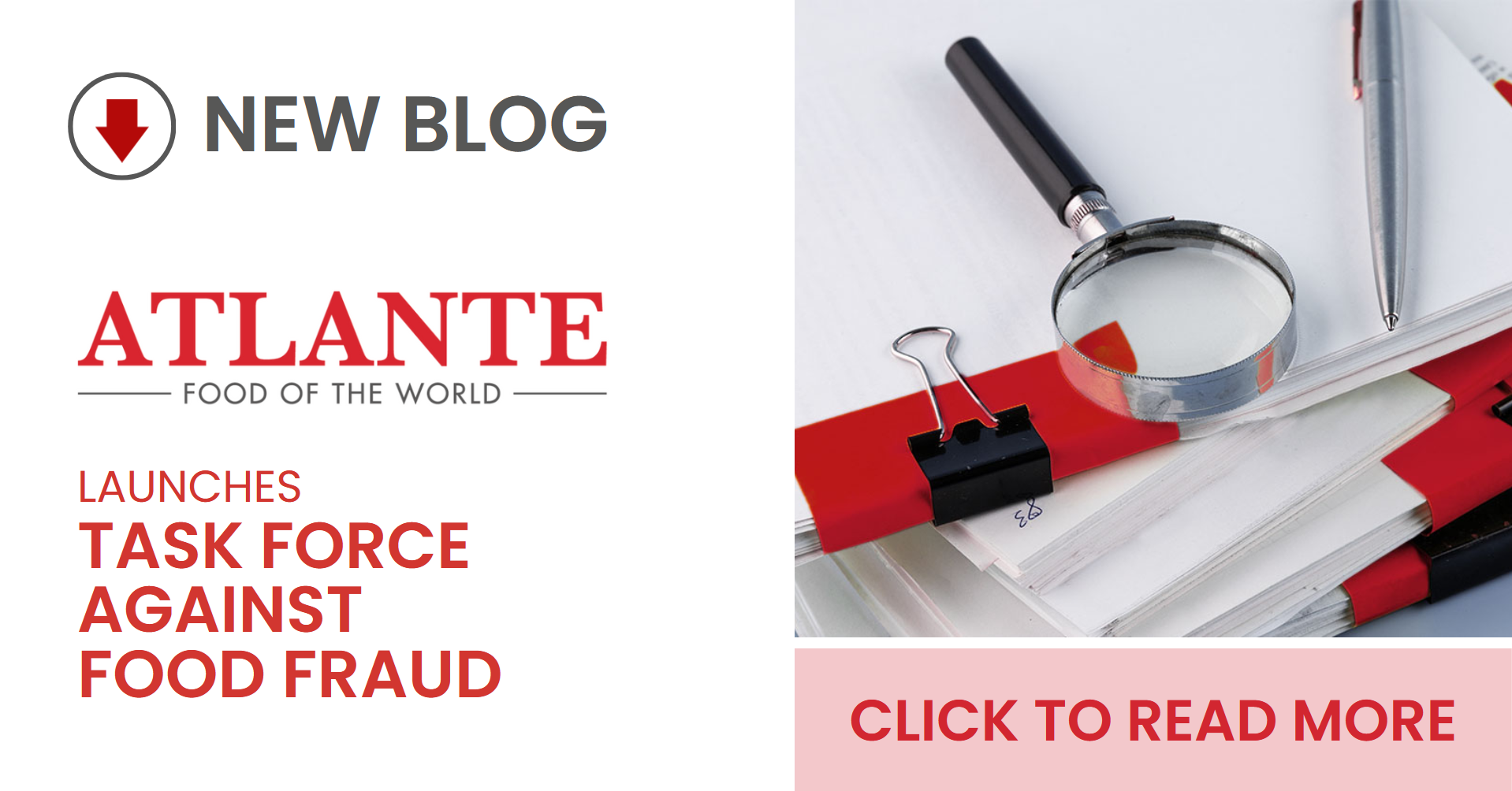Atlante UK at the Food & Drink Expo 2024
This year, the Atlante UK team will be heading to one of the most anticipated events in the food...
Thank you for visiting us!
This website does not completely support on Internet Explorer. Please use another browser.
Apologies for inconvenience

Already trusted by major international food and beverage chains for the selection, export, import, and distribution of high quality goods and products around the world, Atlante is proud to announce a further plan designed to ensure even greater quality assurance.
Atlante’s Food Fraud Risk Assessment is a robust plan featuring a freshly appointed task force and carefully designed assessment system.Read on to learn exactly how the Food Fraud Risk Assessment Task Force works, along with why these measures are so necessary for the food and beverage industry today.
The Food Fraud Risk Assessment is based on in-depth knowledge of food fraud vulnerability assessment tools and techniques, which are applied in a practical and industry-relevant way. Through this program the risk is assessed for each individual product marketed and the level of intrinsic risk is calculated.
Our Food Fraud Specialist is also tasked with identifying raw materials and/or finished products in the market that are at risk of fraud. As leaders in market intelligence, our data-driven approach and expert analysts can reliably outline various risks and trends in commodities, ingredients, and raw materials.
“The protection of products and customers is the top priority for Atlante, which is why we have developed this solid Food Fraud Risk Assessment plan and integrated the figure of the Food Fraud Specialist," explains Natasha Linhart, CEO of Atlante. "Our plan is based on extensive knowledge of the tools and techniques used to identify and assess food fraud vulnerabilities, and is applied in a practical, meticulous and constantly updated manner.”
She goes on to detail the importance of this multifaceted plan:
“Assessing vulnerabilities in the food sector requires an integrated approach involving all stakeholders in the food chain, such as producers, suppliers, distributors, regulators and control bodies. Identifying and mitigating vulnerabilities is essential to ensure food safety, protect consumers and preserve the integrity and reputation of our industry.”
Food fraud is a very significant problem for many companies in this sector. By definition, it refers to 'intentional product-related alteration,' such as the undeclared substitution of ingredients, falsifying the geographical origin of a food, misleading labeling or counterfeiting of trademarks, with the aim of obtaining an economic advantage or defrauding consumers. More information on the particular nature of each type of food fraud can be found below.
There are therefore many complex aspects of food products to be monitored, such as the integrity of ingredients, their origin and traceability, specifics regarding their production processes, distribution and logistics, and even IT security considerations.
During 2022, according to data from the ICQRF (the Central Inspectorate for the Protection of Quality and Fraud Repression of Agri-food Products of the Ministry of Agriculture) over 32.7 million euros' worth of goods were seized due to food fraud; more than 90% of the checks concerned the food products themselves and around 10% were concerning technical means for agriculture (feed, fertilisers, seeds, phytosanitary products).
Overall, this amounted to over 27.6 million kg of goods seized last year, according to the ICQRF data.
Curious about how food fraud practices actually work? They can take many forms, including:
The consequences of food fraud can be significant, for both consumers and businesses. Consumers can be deceived into buying inferior quality food products or made to pay premium prices for counterfeit products- and in the worst cases, they can be exposed to serious health risks.
Food businesses can suffer reputational damage, financial loss and potential legal consequences. Therefore, to combat the problem of food fraud, control and monitoring measures along the entire food chain are needed- as well as collaboration between regulators, producers, distributors and consumers themselves.
Atlante acts as a valuable link between regulators, producers, distributors, and the consumer market, upholding our high standards and values every step of the way. We are pleased to be implementing the Food Fraud Risk Assessment Task Force to aid in this aim.
Complete article on Il Corriere della Sera
To find out more about how Atlante can assist you, contact us or subscribe to our blog below for more key insights and updates.
This year, the Atlante UK team will be heading to one of the most anticipated events in the food...
Stop Food Waste Day is a global awareness campaign that is celebrated every year on April 27th to...
Atlante is proud to support and partner with City Harvest, a London-based food charity dedicated to...